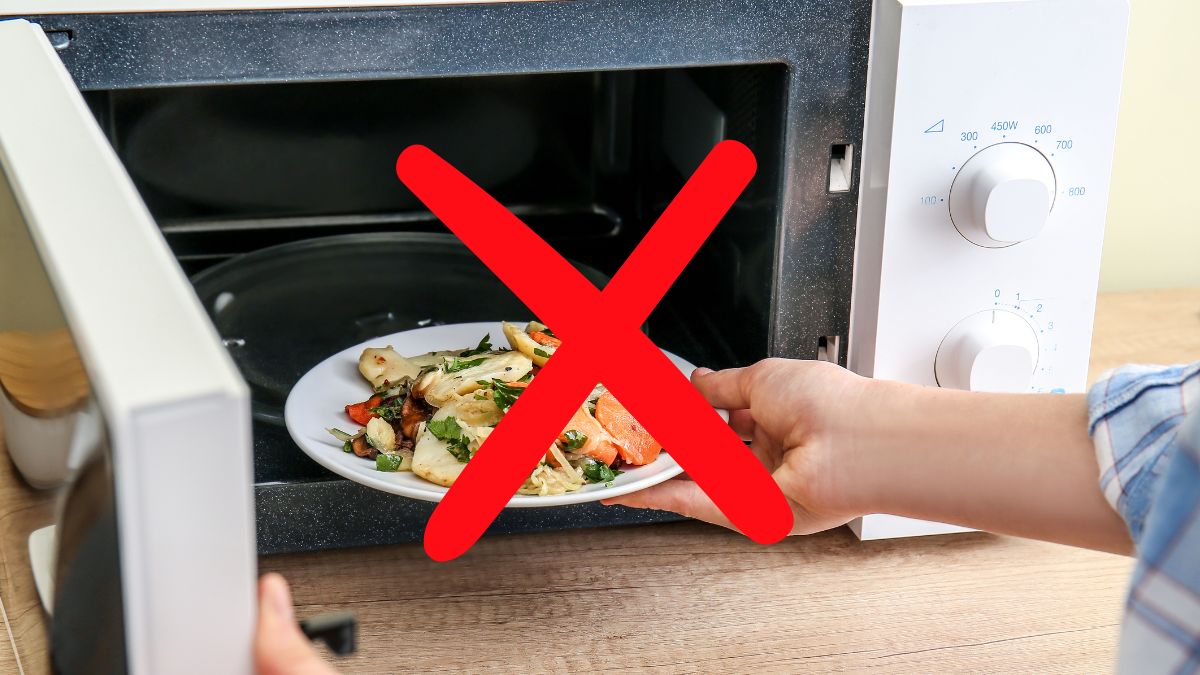While the radiation from a microwave isn’t dangerous, prolonged use can increase energy consumption and may lead to damage if not used properly.
No kitchen seems complete without a microwave. Since its introduction into households, this essential appliance has become a staple, simplifying our daily culinary tasks. First invented in the United States during the 1950s, the microwave gradually gained importance across the globe, finding its way into homes everywhere.
The primary advantage of a microwave is its ability to quickly heat or defrost any food item. This efficiency saves energy and eliminates the need to dirty additional appliances or utensils. However, it’s important to note that for quite some time, many have voiced concerns that the waves emitted by microwaves might increase the risk of developing cancer.
Despite common beliefs, the idea that a microwave oven poses a health risk is completely false. Experts recommend keeping it unplugged, but not for the reasons you might think. The radiation emitted by microwaves is non-ionizing, meaning it doesn’t have the capability to remove electrons from atoms. Studies, such as those conducted by the National Cancer Institute in the United States, confirm that most types of non-ionizing radiation do not have enough energy to cause cancer.
The Real Reason to Unplug Your Microwave
While the risk of cancer from microwaves is unfounded, there are still questions about the potential health impacts of frequent use. In a recent interview, Henri Joyeux, an oncologist and expert in cancer and nutrition, emphasized that this appliance should be used in moderation. He pointed out that, although microwaves are generally safe, it’s wise to be cautious and mindful of how often you rely on them for cooking.
There are claims that one should exercise caution when using the microwave due to the structural modifications that amino acids undergo. These changes can lead to various risks, such as alterations in peptides or proteins, which may become more difficult for the body to absorb. Additionally, some potentially toxic compounds might emerge. Experts highlight that when L-proline is heated in a microwave, it transforms into D-proline, a neurotoxic substance that can have harmful effects on the liver and kidneys.
When using a microwave, it’s crucial to exercise caution, particularly regarding the microorganisms present in frozen foods. These microbes may not be destroyed during the heating process. Partially thawing food can lead to the multiplication of germs, making it essential to carefully select the quality of products before using this appliance.
The Risk of Using Microwaves
An expert explains that using a microwave can pose risks if the proper measures are not taken. Unlike cooking, this appliance merely heats food. Therefore, if the product lacks adequate bacteriological quality, germs can thrive, posing potential health hazards.
Is It Really Dangerous to Use the Microwave?
It’s easy to notice the differences between cooking food in a microwave versus using traditional cooking methods, mainly because the microwave offers a faster and more aggressive way of cooking.
In fact, many experts assert that the microwave can alter the composition of food, potentially affecting its physical and nutritional properties, and possibly making it less healthy for the body. There are several aspects worth understanding about this:
Key Considerations When Using a Microwave
- Alteration of Components: Cooking in the microwave can lead to significant changes in the molecular structure of foods, including amino acids, minerals, proteins, sugars, antioxidants, and vitamins. This reaction not only reduces the benefits related to nutrient absorption but can also cause harm to the body if this cooking method is used continuously.
- Heat Distribution: While many people believe that the microwave heats food from the inside out, the reality is quite the opposite. The microwave is more effective at heating foods that contain liquids, allowing it to easily heat certain parts of the food. However, the heat provided by this appliance does not distribute evenly.
When it comes to using the microwave, a common concern is that the heat may not penetrate deeply enough into the food. This can result in the presence of bacteria or other harmful elements that might remain, posing potential health risks.
Impact of Electromagnetic Waves on Food
Microwaves utilize electromagnetic waves to heat food, causing molecules within to rub, collide, and vibrate. This process might lead to significant dehydration of the food as it loses a substantial amount of its natural juices. Such dehydration can affect the aroma, flavor, and texture, making the food different from results achieved through more traditional cooking methods.
Considerations by the World Health Organization (WHO)
Despite these concerns, the World Health Organization (WHO) emphasizes that there is no significant risk associated with using a microwave to cook or heat food, provided it is used correctly.




